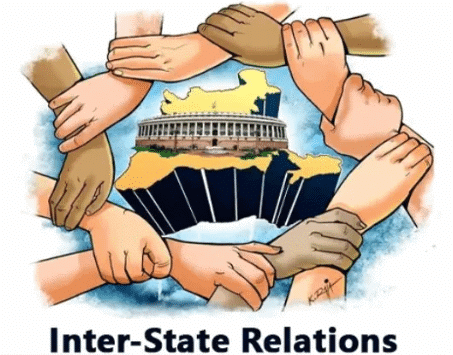Cheat Sheet: Inter-State Relations | Indian Polity for UPSC CSE PDF Download
Introduction
The Indian Constitution outlines a complex framework for inter-state relations, aiming to facilitate cooperation and coordination between the Centre and states, as well as among the states themselves. This system includes provisions for resolving disputes, ensuring trade and commerce freedom, recognizing acts and judicial proceedings across states, and fostering collaboration through institutions like Inter-State Councils and Zonal Councils. The effectiveness of this system is crucial for maintaining unity in India's federal structure. This document provides a detailed chronology of inter-state relations in India, covering major constitutional provisions, laws, and committees designed to improve these relations.

Inter-State Water Disputes

Inter-State Councils

Public Acts, Records, and Judicial Proceedings

Inter-State Trade and Commerce

Zonal Councils

 |
Download the notes
Cheat Sheet: Inter-State Relations
|
Download as PDF |
North-Eastern Council Act (1971)

Conclusion
India's federal system relies heavily on inter-state cooperation for its smooth functioning. The Constitution provides several provisions and institutions to address inter-state disputes, ensure efficient trade and commerce, and promote coordination among states. The establishment of bodies like the Inter-State Council and Zonal Councils reflects India's commitment to resolving issues of regional importance through cooperative efforts. These measures are essential in maintaining unity and ensuring the effective administration of India's diverse and federal structure. Understanding these provisions helps in appreciating the challenges and mechanisms of India's federal relations.
|
144 videos|639 docs|203 tests
|
FAQs on Cheat Sheet: Inter-State Relations - Indian Polity for UPSC CSE
| 1. What are the key factors influencing inter-state relations in India? |  |
| 2. How does the Constitution of India address inter-state relations? |  |
| 3. What are the common disputes that arise between Indian states? |  |
| 4. How do inter-state councils facilitate inter-state relations in India? |  |
| 5. What role does the Governor play in maintaining inter-state relations? |  |

















